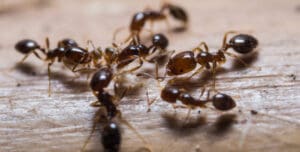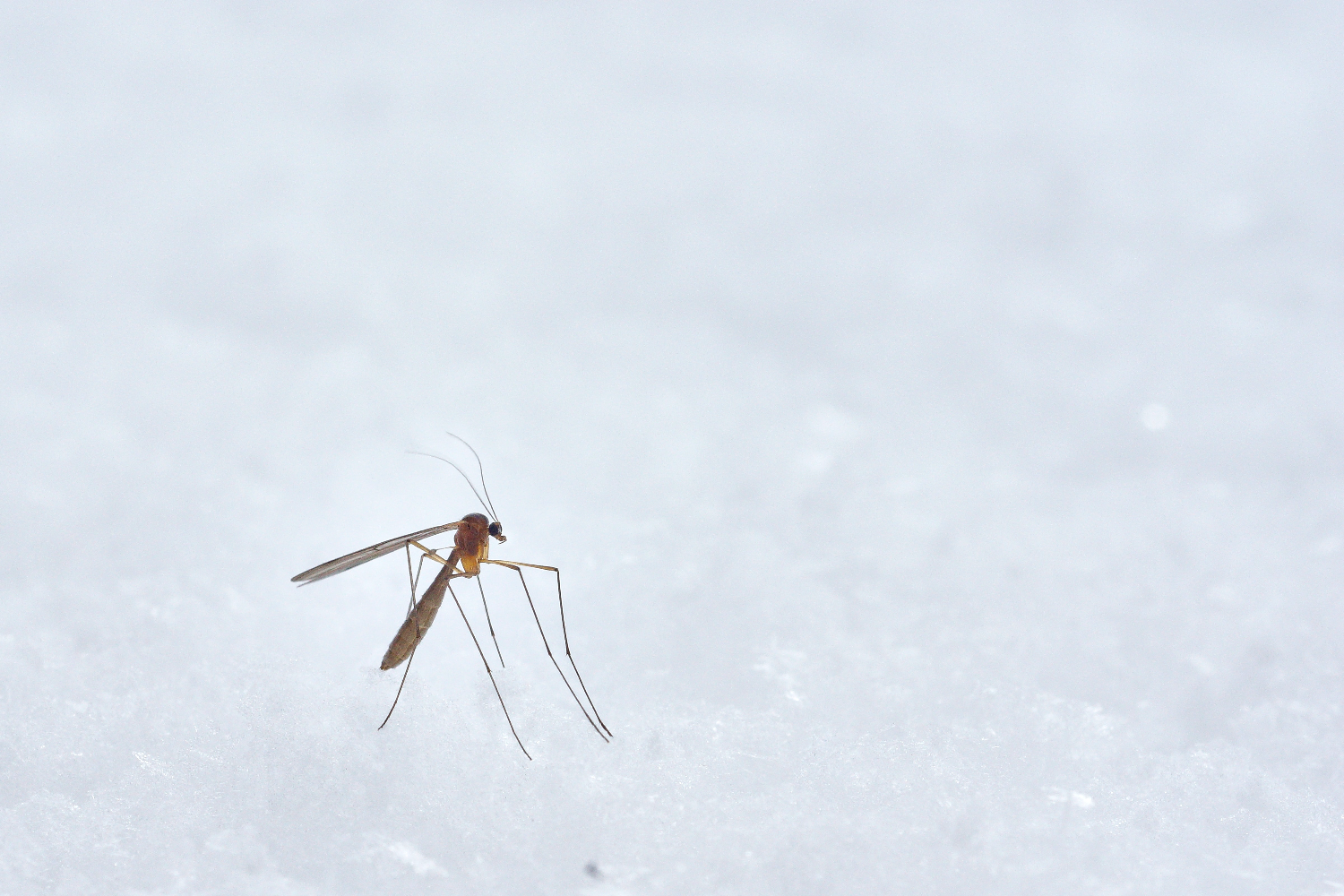With fall bringing with it cooler temperatures you can thankfully bid farewell to mosquitoes for a while. No more itchy bites, annoying incessant buzzing, or sleepless nights spent swatting away these pests. That is until the warmer months roll around again.
However, contrary to popular opinion, mosquitoes don’t die off in some happy hunting ground when the temperatures start to drop. So, where exactly do they go in the winter months?
The Mosquito's Life Cycle
Mosquitoes develop in four stages in their lifespan, starting out as eggs. The eggs are laid by the females, usually on the surface of standing water or in damp or very wet places. The species of the mosquito, temperature, and the amount of water all play a role in determining when the eggs will hatch. The usual time is about 24-48 hours after laying. But eggs can also survive a few months in dry conditions before hatching. However, no hatching will happen without water, as mosquitoes need water to develop into adults.
Like most insects, larvae emerge from the eggs and these “wrigglers” feed on tiny microorganisms in the water or damp soil. The larvae then molt three times before turning into pupae, referred to as “tumblers”. At this stage they still live in water but stop feeding. After about a week at most, tumblers molt into adults.
The adult mosquitoes can now fly away to look for food -the males will look for nectar from plants and the females for blood. In most mosquito species, it is the females who need blood to lay eggs. Once they obtain the blood they need, they look for water to lay their eggs, restarting the life cycle.
Where Do Mosquitoes Go?
Mosquitoes prefer temperatures of 80°F and higher, so it’s common sense that they are more of a problem during the warmer months and high summer. The warmer months are also wetter, and mosquitoes need water to survive. They don’t like temperatures below 50°F.
Once the cooler weather arrives, they will become less active. Adult males have a very short lifespan and die off after mating, while the females have different methods of overwintering, depending on the species of mosquito. They usually do their overwintering by going into one of the four development phases. This process is not unlike hibernation.
Let’s take a look at these development stages for overwintering.
Some species of female mosquitoes like to overwinter in egg form. The females lay eggs in whatever water they can find near the end of the summer season. As temperatures drop, the eggs will begin the phase referred to as “diapause”, when all development stops until temperatures warm again. Once it’s warm enough (50°F and above), development will begin again, and the eggs will hatch when the larvae are fully developed.
Other species of mosquitoes can survive the winter months as larvae and pupae, I.e., they are not yet adults. Even though they still require water in winter, mosquitoes in the above phases will enter the diapause phase and development will cease altogether.
Once the weather warms, they will emerge from diapause and develop as normal into adults.
If certain species of mosquitoes spend their winters as eggs, larvae or pupae, the adults of these species will die off after mating and laying their eggs. Obviously, all males of all species will die before winter sets in.
However, the females of certain species will not die off and will survive the winters. Once it gets too cold with near freezing conditions, these mosquitoes stop flying and become inert. They then look for a safe place to overwinter. Places they favor include cellars, sewers, caves, hollow damp logs and ground cracks. When they find an appropriate place, they will go into diapause, during which they can survive freezing and waterless conditions for 6 months.
Note that these females have not laid eggs after mating during the fall. Diapause enables them to delay their egg production until the warmer weather arrives. They will become active and come out of hiding once the temperatures are consistently above 50°F, when they are almost ready for egg laying.
After emerging from diapause, the females need to look for blood in order for their eggs to develop fully. After they have obtained enough blood, they go to the place they have been holding since autumn to lay their eggs.
New Jersey Mosquitoes
There are lots of species of mosquitoes in New Jersey, but we will talk about the three most common species.
Cattail mosquitoes: As they need vegetation that lives in aqueous environments, these mosquitoes favor cattails and sedges -or any plant that lives in water. Adults like to hang out in forests and shady areas and the females of this species are particularly voracious. The usual treatment of larvicides is relatively ineffective in killing these mosquitoes and pest control experts recommend curtailing excessive cattail growth.
Asian Tiger mosquito: This fierce-sounding species thrives in hot and wet environments, so they really get going in high summer. Their black bodies sport white stripes, particularly on the legs. Their eggs are laid above water surfaces. They could also carry diseases such as the West Nile virus, yellow fever, and encephalitis.
Pest controllers recommend that homeowners get rid of standing water around their homes and control any dampness both inside and outside the home. Another recommendation is to wear protective clothing and use insect-repellent lotions or sprays.
White-footed Woods mosquito: This fast-breeding species does not present the health risks of the Asian Tiger, but it does aggressively seek out humans. The same recommendations about clothing and repellents apply with this species.
A Formidable Pest
As you can see, mosquitoes have perfected the ability to delay development and enter a hibernation-like state to survive the colder winter months. It’s wishful thinking that they die off. Mosquitoes will be back, particularly during the months through April to October.
If
spring arrives and brings with it a plague of mosquitoes, or if
winter pest control becomes a concern, don't hesitate to
contact Twin-Boro to take care of your pest problem. Mosquitoes should never stop you from enjoying the warmer months – after all, it's your summer season too.


